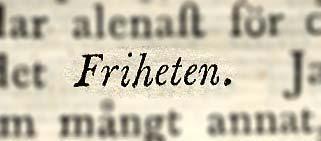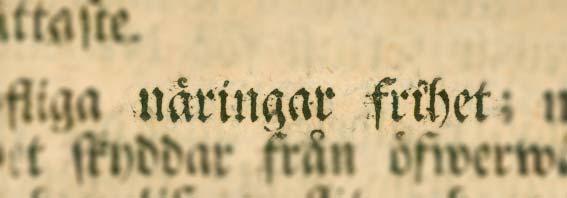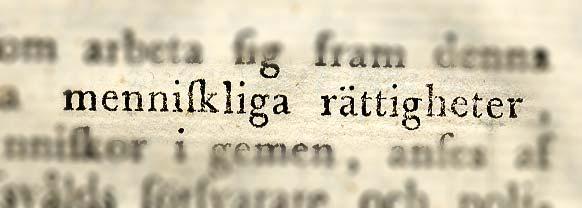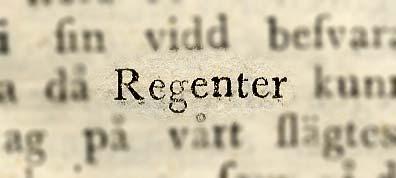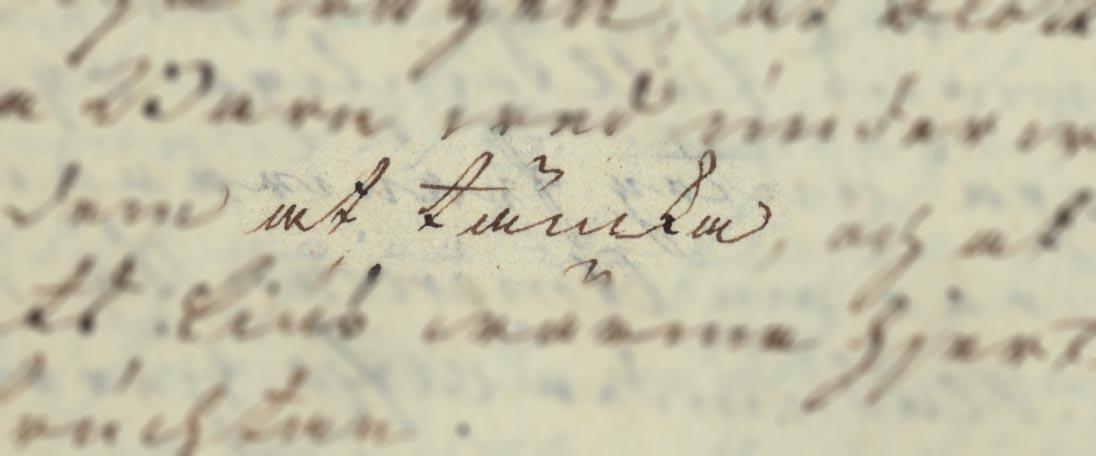About equality
Freedom and communal resposibility
By freedom, as I use the term, I understand the advantage that every citizen ought to possess through a country’s laws and regulations in order to promote his own happiness, as long as he in no way offends against that of his fellow-citizens or society as a whole.
We are all human beings, all tainted by evil desires; all of us therefore need each other’s help and all of us careful supervision. As long as we stand outside society, each one of us deals with his own affairs as he wishes but then also has to face the consequences alone, without protection from anyone, and that freedom is natural. But as soon as we seek the protection of a society, its best interests are also our fundamental law.
We have all voluntarily sworn loyalty to the Swedish Crown, a Crown that is all the dearer to us as it rests on pillars of freedom. No one should therefore lord it over another, no one be another’s slave: all possess the same right, all the same advantage. When that is the case, a citizen possesses everything that he can reasonably wish for or can ever obtain in a well-ordered society; nor will there then be any reason for him to emigrate, but a hundred that will keep him here.
Happiness grows from equality
The liberty of a fortunate country in no way consists in the possession by one citizen or another of any special privileges, while others labour under some form of servitude; but when the lowliest subject in a society is able, under a good government, to pursue his own as well as the public good as freely as the most distinguished one, only then should it be termed liberty. And as such a common liberty of the citizens is the chief aim of our hallowed fundamental laws, everything that offends against it should be regarded as an infringement of the constitution itself.
Unequality
The more opportunities there are in a society for some to live on the toil of others and the less others are allowed to enjoy the fruits of their labour, the more will industriousness be destroyed; the former become overweening and the latter desperate, while both become neglectful.
The National Gain (1765), § 20, p. 20. Translated by Peter C. Hogg.
Economic equality
One can see from this how it is possible for the greatest national profit in trade and commerce, if it is concentrated in a few hands, to be far more harmful to the country than if it loses an entire province as a result of war. As desirable as it is for a nation to preserve its liberty, so too must it pay equal attention to the wealth that accumulates in certain places. The community at large may have no right to the property of private individuals when it has been legally acquired, but on the other hand it also contributes to the ruin of the country if it does not promptly open those dams that have gathered wealth together in a few places and impoverished the rest.
The Source of Our Country’s Weakness (1765), p. 4. Translated by Peter C. Hogg.



